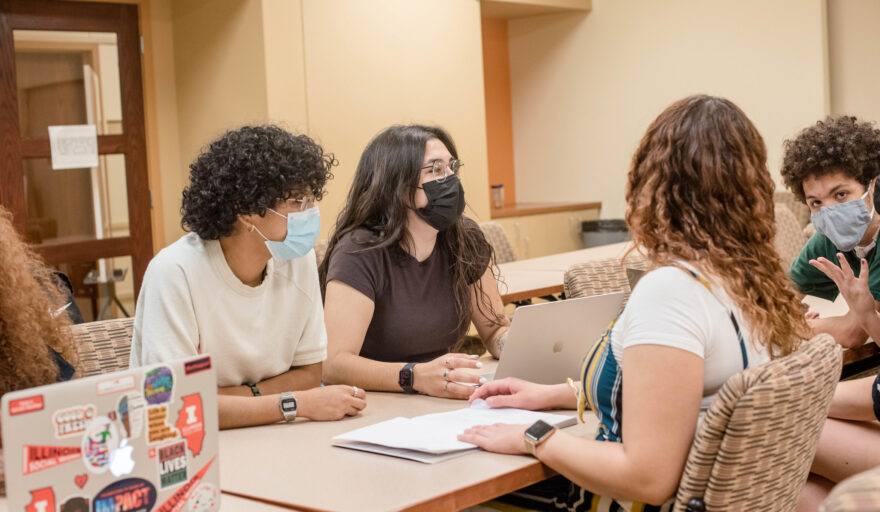Office of Student Affairs: Supporting Students for Success
Monica Cherry
Director of Student Affairs

The School of Social Work offers an array of services to undergraduate and graduate students that help keep them healthy and on track to graduation.
Food insecurity. Anxiety. Financial issues. Relationship strife. Job stress.
These are just a few of the issues that Monica Cherry and her staff of six in the Office of Student Affairs (OSA) deal with on a regular basis.
Cherry, who stepped into her role as director of student affairs in December 2019—one month before COVID began to spread like wildfire across the United States—has seen it all and done it all.
The OSA is in charge of a wide array of affairs for over 650 undergraduate and graduate students. This engagement begins at recruitment, and support is provided throughout the entire student experience all the way through graduation.
“We provide academic support, putting supports in place so they can be academically successful,” Cherry says. “That includes working with other units on campus to provide those supports, such as the Office of Minority Student Affairs and DRES (Disability Resources and Educational Services) to provide accommodations for students and the Writers Workshop. We also have our own writing consultant.”
Holistic Approach
Student Affairs also refers students to mental health practitioners and health providers, depending on their needs.
“We take a holistic approach,” Cherry says. “We practice social work with our students, asking them what might be impairing their ability to focus on their academics and then fill in the gaps to get the proper resources in place so they can be successful.”
She likens the approach to understanding the full scope of an iceberg. “You can look at students and see some of the surface issues, but when you look beneath the surface, it’s a much bigger issue,” she says.
COVID Heightened Anxiety
Students’ success was challenged by COVID, which heightened their anxiety and caused depression related to a lack of socialization, Cherry says.
“Throughout the pandemic, students have continued to present with the same issues they’ve always had,” she says, “with an increase in stress levels, anxiety, and depression. We also witnessed an increase in self-reported substance abuse, self-harming behaviors, poor emotional regulation, and difficulty in reaching out for support.”
Mentoring and Support Program Started
Through a grant obtained by Carol Wilson-Smith, BSW program director and clinical associate professor, the School received funds to start a peer mentoring and support program for undergraduate students who were affected by COVID. “It was very successful,” Cherry says. “Our hope is to continue that program post-grant.”
Student Affairs works closely with faculty and staff so students don’t fall through the cracks. “Students aren’t just numbers to us,” Cherry says. “We genuinely care about them and that message is conveyed through everything that we do. We take a very student-centered approach. That message is infused from the time we recruit students into the program to the time we see them walk across the stage at graduation.”
Silver Lining
The pandemic has had a silver lining, Cherry says.
“It has advanced the conversation about the importance of mental health,” she explains. “It’s continuing to reduce the stigma associated with us talking about mental health. In those ways, it’s really helped our field. And it’s given people a greater appreciation of the skillsets that we as social workers have and bring to the table.
“The pandemic has advanced the very important topic of mental health—and it’s going to advance our field, which has been historically undervalued.”